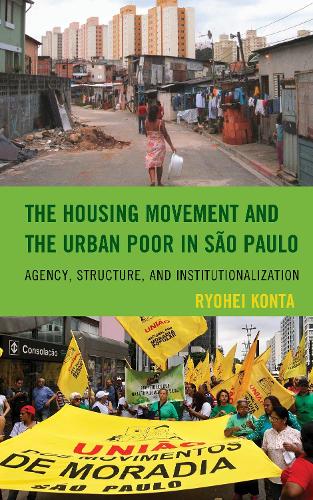
The Housing Movement and the Urban Poor in So Paulo: Agency, Structure, and Institutionalization
(Hardback)
Publishing Details
The Housing Movement and the Urban Poor in So Paulo: Agency, Structure, and Institutionalization
By (Author) Ryohei Konta
Bloomsbury Publishing PLC
Lexington Books
19th December 2019
United States
Classifications
Professional and Scholarly
Non Fiction
History of the Americas
362.5098161
Physical Properties
Hardback
116
Width 159mm, Height 229mm, Spine 13mm
363g
Description
This book explores the ways in which the urban poor population of Brazil participates in social movements. This study focuses on their agency, analyzing the interactive relationship between the urban poor in collective actions and the structural change represented by the participatory administration, which primarily saw implementation and institutionalization in Brazil at the beginning of the 21st century. Ryohei Konta argues that, as the structure of the participatory administration is more actively implemented and institutionalized, social movements will benefit from increased political opportunities. This result encourages the urban poor to participate in social movements as a means to realize their interests. Participation in social movements also stimulates their action with intention and capability (agency), which collectively interacts with the structure of increased opportunities (participatory administration), leading to self-fulfillment and more frequent participation in social movements. Scholars of sociology, Latin American studies, economics, social movements, and urban development will find this book particularly useful.
Reviews
This book demonstrates that the agency of the urban elderly poor does not disappear when the environment changes. They interact collectively and continuously with the changing structure. With their participation, the elderly poor become more empowered, and socially included, at the micro level. -- Maria da Glria Gohn, The University of Campinas
Author Bio
Ryohei Konta is senior overseas research fellow at the Institute of Developing Economies - Japan External Trade Organization.
